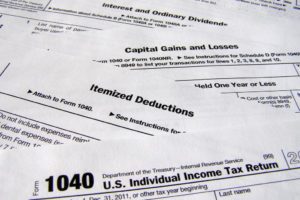 When disaster hits, Project X can clean up the damage while you focus on what matters. Today, let’s cover Water Damage Restoration Part 2: Saving Books and Papers. Just know that when you call our Denver restoration experts, we will respond immediately. When your home floods, we are there for you, cleaning up, restoring, and remodeling. That leaves you free to rescue things like letters, tax and legal papers, marriage licenses, wills, birth certificates and old books that could be irreparably damaged if you don’t take action to save them.
When disaster hits, Project X can clean up the damage while you focus on what matters. Today, let’s cover Water Damage Restoration Part 2: Saving Books and Papers. Just know that when you call our Denver restoration experts, we will respond immediately. When your home floods, we are there for you, cleaning up, restoring, and remodeling. That leaves you free to rescue things like letters, tax and legal papers, marriage licenses, wills, birth certificates and old books that could be irreparably damaged if you don’t take action to save them.
In addition to the damage water can cause, mold can create a real health issue from keeping damaged items made from paper. So how can you save your water-damaged important papers and special books? If you begin the process quickly enough, they can be cleaned and dried. Here’s how to do it.
Remove the Books and Papers
Gently remove the books and papers from the water.
Rinse the Items
You may need to carefully rinse the papers and books with cold, clean water in a sink or bucket. If the papers are fragile, lay them out on a flat surface and rinse them with a light water spray.
Lay Them Out
You should lay the papers by themselves on a flat, clean surface, or hang them on a string. Keep them out of the sunlight. Sometimes they may need to dry out a little bit before pulling them apart.
The water-damaged papers and books should be placed on blotter paper, like plain white paper towels, so the moisture can be absorbed. Avoid newspaper and printed paper towels because the ink can bleed onto your paper items.
Dry Them
Now you need to dry the books and papers. Some people like to use a fan to speed it up. For books, absorbent paper can be placed between the soaked papers and laying the books flat. Change out the blotting paper when they get soaked.
Just like restoring photos, if you are short on time or there are too many papers to deal with, you can seal them in Ziploc bags and put them in your freezer. This stops more damage to the paper and books until you can get to them.
Sometimes just being in the location of a flood and the humidity can cause mold to grow. So, even if the books and papers aren’t wet, they should still be air dried with fans if possible.
Get Rid of the Smell
After they are dry, do the papers and books still smell musty? If so, keep them in a cool, dry place. If after a few days they still smell, put them in an open container with a box of baking soda. The baking soda should absorb the smell. Make sure the baking soda does not touch the papers.
Mold
The papers and books should be checked for mold. If there is mold, copy or scan the papers and then throw them away.
If you act quickly, salvaging important documents is possible. Hopefully you learned something from our guide, Water Damage Restoration Part 2: Saving Books and Papers. If you ever find yourself in need of our help, call our experts at Project X Restoration in Denver when your home has water damage and we will get to work immediately. We’ll develop a complete restoration plan and get your home back to its pre-loss state.